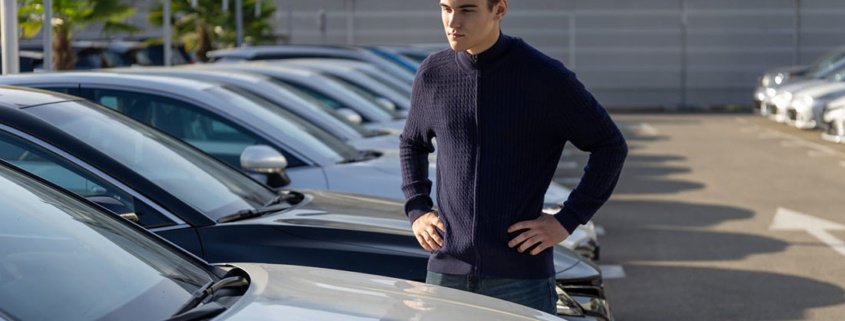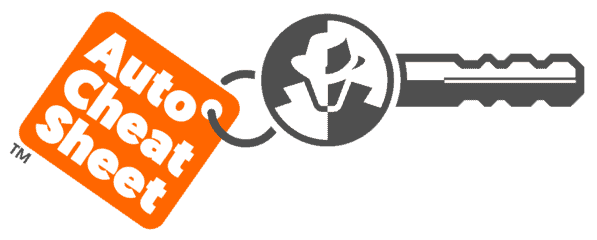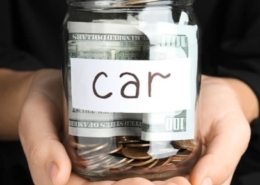Common New Car Buying Mistakes
These Mistakes Will Cost You Money.
We’ve all made mistakes when buying a new car. Dealers like to wear you down by dragging out the car buying process.
This gives them a better chance that you’ll make a car buying mistake and allow them to take advantage of you.
Table of Contents
- Not test driving the exact car you want
- Limit car shopping to one dealership
- Letting emotions take over
- Paying too much for the popular car
- Buying a car you cannot afford
- Purchasing the wrong vehicle
- Not realizing the actual cost to own
- Not knowing the best price to pay
- Not putting any cash down on a car
- Start negotiations from M.S.R.P.
- Bringing up your trade too early
- Buying a car based on the payment
- What you should not say to a car salesman
Not Test Driving the Exact Car You Are Buying
I’ve heard so many car buyers say, “I don’t need to drive it,” “I know what it drives like,” “I rented one before and loved it,” or the best one is, “I just drove one at the dealership down the street.” Each vehicle is an individual machine, and each one is different.
Would you buy a pair of $180 shoes before trying them on?
Vehicles are manufactured machines, and machines sometimes have faults. There may be 10 of the same car, and each one may drive or act slightly differently. Not driving the vehicle you’re going to buy may keep you from realizing the seat may not feel the same as the last one.
Limiting Car Shopping to Only One Dealership
When shopping for the best deal, focusing all your time and energy on one source or at only one dealership can severely disadvantage you. Competition between dealerships will always get you the best price, and you should always gather as much information upfront, from as many sources as possible, to make a good buying decision. This also gives insight into how much a specific vehicle sells in your local area.
All franchise dealerships buy their new cars at the same price from the manufacturers. It would be unfair if one dealer could buy a car cheaper than another. When it comes to discounting a vehicle to you, it’s up to the individual dealer on how much they’re willing to do so.
You may find that one dealership will only discount a vehicle $1,000 to move it, and another dealer may do whatever it takes to sell a car.
Let Your Emotions Get Involved
You see the exact car you’ve been dreaming about, and OH MY GOODNESS, it’s the right color too! In your head, you begin to justify and rearrange your finances and life. You tell yourself you can afford it and must do whatever it takes to BUY THE CAR RIGHT NOW!
A car salesman aims to get you emotionally attached to the vehicle. If they notice you’re getting connected, they will turn the heat on you. Slow down, take a deep breath, and even walk away for a minute.
We all tend to make bad decisions when we let our emotions take over, don’t do something that you’ll possibly regret later. If you can’t get that dream car today, the manufacturers will still make more tomorrow.
Paying Too Much for the Popular Car
Some car dealers will excessively mark up “popular” or “high demand” vehicles well over MSRP. This is called Additional Dealer Mark-up (ADM). If a car is truly popular or in high demand, there will be none available on the lot or a long waiting list to get the car. The other option you have is to wait six months or so. While waiting, build up your down payment and let the “NEW” wear off.
A classic case of excessive ADM was when the Chrysler PT Cruiser was introduced to the market. I witnessed people willingly pay $4,000 to $8,000 over MSRP to be one of the first people to own one. Little did they know, the car’s body sits on a Neon frame, and the car itself depreciated the same as any other vehicle, if not worse.
If you’re one of those who must drive the latest and greatest vehicle on the road, there’s nothing wrong with that. If you’re willing to pay the ADM, pay it in cash over and above your 15-25% cash down payment. Doing so will keep you from being in negative equity or upside-down future situations.
Buying a Car You Cannot Afford
You can be your worst enemy when it comes to this situation. You’re looking at a specific car, and the salesperson says, “For a little more money, this car has a 16-way adjustable power seat.” Let me ask you a question. How many times have you adjusted the seat in your current vehicle in 3 or more different ways?
It’s human nature to want all the good things in life and the “bells and whistles” of a new car. Some people must have all the creature comforts and will pay thousands of dollars to get them.
If you want your monthly payment to be $375, don’t “bump” yourself into a higher car payment once you get to the dealership. Don’t forget you still have other ownership expenses such as car insurance, warranty, preventive maintenance, and fuel.
Overall it’s your responsibility to know what you can and cannot afford. Review your finances, create a budget and determine what you can comfortably afford beforehand.
Buying a Car that Doesn’t Meet Your Needs
Take the time to shop, review, and research vehicles online before visiting a car dealership. The last thing you want to do is buy a car that doesn’t meet your driving needs. Will you be towing something regularly, or do you have a large family? If so, you probably don’t want to buy a two-door Toyota Prius.
I’ve seen car buyers come back a couple of weeks, up to 6 months later, and try to bring the car back or trade it for another. This puts you and the car dealer in a bad spot.
The customer is generally in a substantial negative equity situation (owes a lot more than what the car is worth), and the car dealer is the one that has to break the news to them. This makes the dealer “The Bad Guy.”
Suppose the customer insists on trading in the vehicle. In that case, they’ll have to either put down a considerable amount of money to cover the negative equity or, if approved, roll it into the next car loan.
Not Realizing the True Cost of Owning a Hybrid Vehicle
The new hybrids use less fuel; however, most only offer a couple more miles to the gallon than regular vehicles. A hybrid’s cost is still much higher than your standard gasoline-powered vehicle.
Make sure you do your homework when selecting a hybrid to justify the total cost before shelling out an extra $4,000 to $9,000 to own one.
The overall gas miles-per-gallon and overall cost of hybrids are starting to come down. However, before you buy, you may want to double-check your breakeven point to see if it will genuinely benefit you.
Not Knowing the Best Price You Can Pay for the Car
Car dealers always have some big sale; they want you to buy a car right now. They also want you to believe you happen to show up on the last day of their latest and greatest, once-in-a-lifetime sale. Please don’t fall for it. Remember, a wizard is pulling the strings behind the curtain.
Always do your homework and research new cars online before going to a dealership. This will keep you from falling for the colorful, loud advertisements car dealers spend thousands of dollars on to get you to come to their lots. Take advantage of online automotive research and review websites such as Ryde Shopper, Edmunds, CarsDirect, and MotorTrend.
These free online companies provide a wealth of information about new cars. These companies also offer free, no-obligation discounted price quotes from dealerships in your local area. Using these free online services before buying a car will save you time and money before stepping into a car dealership.
Not Putting Any Money Down When Buying A Car
The $0 down ads car dealers run everywhere have changed the thinking of the car buying society. Even though $0 down sounds very appealing, it’s a big mistake!
Not putting any money down when buying a car will cost you a lot more money in the long run. Car dealers and finance companies advertise “$0 down” because they make more money off the interest when you buy a car.
Suppose you don’t have at least a 15-20% down payment and have to finance longer than 48 months to fit your budget. You may want to consider a less expensive car or wait a while to build up your savings.
At a minimum, put down enough money to cover your tax, title, and license. Paying interest on TT&L is not a good financial decision and makes no sense.
Please read my section on how much cash you should put down on a car to read more detail about how money down affects what you will end up paying when buying a new or used car.
Negotiating From MSRP or the Addendum Sticker
If you ask for the price of a vehicle and the salesperson goes to the sticker to read it off to you, be cautious. He’s setting you up to start negotiating from the MSRP sticker or the car’s addendum sticker. This price is always much higher than what you can buy the vehicle for.
NEVER begin your negotiations of a new or used car from the MSRP! (Sticker Price)
He may say, “I’m sure I can get you a $500 or maybe even $750 discounted off the price if you will buy the car today.” Some people believe this is a good deal and will buy the vehicle at a price offered.
Never start the negotiation process from the MSRP or Addendum sticker. You want to focus on the factory invoice price and move down as much as possible.
Bringing Up Your Trade to Early
Do not let the car dealership or salesperson know you’re planning to trade your current vehicle too early in the negotiation process. It would be best to look at your trade-in as a separate transaction with the dealership.
You’ll most likely be asked several times if you’re going to trade during the sales process. Make sure you agree on the total price of the vehicle you buy before you bring up your trade-in. You also need to know a rough estimate of the actual market value of your current vehicle before attempting to trade with a car dealer.
Just because you owe $12,000 on your car doesn’t mean it’s worth that much!
Although I am totally against trading in your vehicle with a car dealership because a dealer will only give you wholesale value or below, I understand some people don’t have the luxury of time to do this.
Suppose you must trade in your current vehicle to buy another one. Make sure you familiarize yourself with how the dealership appraisal process works and take time to increase the value of your trade-in to ensure you get the most money possible for your car.
Buying a New Car Based On Monthly Payments Alone
Walking into a car dealership and telling the salesperson you need a new or used car and want a monthly payment of $350 is a big mistake. Car salespeople love these customers and can easily manipulate them into paying too much for a vehicle.
A skilled salesperson will take you to a cheaper car allowing the dealer to mark everything up to get you to your payment ceiling of $350/mo without expecting any foul play. They may initially present you with $400/mo payments to let you negotiate down to your original maximum payment of $350/mo. You win, right? Well, at least you think you did.
Never buy a new car based on monthly payments. Always focus on the final purchase price of the vehicle.
What You Should Not Say to Car Salespeople
This is a tough one for a lot of car buyers. It’s human nature when we’re excited to buy something we’ve wanted for a long time. It’s ok to be excited. You want to be careful of what you say or do.
Professional car salespeople watch and listen for signs of emotion and impulse while people are in the car buying process. They also feed off what you say and do to determine what steps to take with you next.
Things you NEVER say at a car dealership:
- “I love this car.” (Emotions put you in a weak position in the car salesman’s mind, and he’ll assume you’ll pay more if you “love” the car.)
- “I got to have” or “I need this car.” (The salesman or dealer believes you’ll pay more for the car if you must have it.)
- “I can only afford this much a month.” (Car dealers will pack your payments as much as possible to get you to your payment ceiling. Always talk about the total price of the car and not the monthly payment.)
- “I have a car I want to trade” or “do you take trade-ins?” (Never mention this until you and the dealer have agreed on the price of the vehicle you intend to purchase.)
- “I have my car loan or financing arranged.” (This sends up a red flag letting the dealer know they need to hold some gross profit on the vehicle’s price since their chances of making money on you from financing the car are slim to none.)
As much as you want the car salesman to know, you’re a “professional car buyer.” It would be best if you refrained from talking too much. You will be in much better shape after leaving the dealership in your new car.










